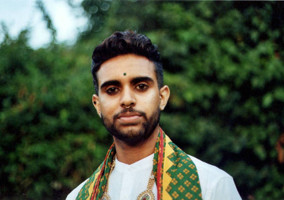One-quarter of the chief executives at the largest 100 charities attended either Oxford or Cambridge University at some point in their education, according to analysis by Civil Society News.
Less than one per cent of the UK population have been to either Oxford or Cambridge, but 25 chief executives at charities in this year's Charity Finance 100 Index have been to Oxbridge.
Some 82 chief executives either list their university education on their LinkedIn profile or provided it when asked by Civil Society News, with 30 per cent of them saying that they went to Oxbridge. Six charities did not have a chief executive in post at the time of the survey and 13 did not respond to the survey.
This number is higher than the percentage of Oxbridge graduates leading FTSE 100 companies. Of the FTSE 100 chief executives 18 per cent graduated from Oxbridge, according to the results of the annual Robert Half FTSE 100 CEO Tracker.
Of the charity chief executives who attended Oxbridge, 80 per cent were male and 20 per cent were female.
The majority of charity chief executives, 65 per cent, went to a Russell Group university. The Russell Group is a self-selected association which represents 24 leading UK universities, which include both Oxford and Cambridge.
Only two of the chief executives at the largest 100 charities told Civil Society News that they did not attend university. Heidi Travis, chief executive at Sue Ryder did not attend university and started her career at Marks & Spencer. The Royal National Theatre’s Rufus Norris also did not attend university.
Others did not join directly from school, but attended later in their careers. For example, Action for Children chief executive, Julie Bentley, did a self-funded masters through Open University in her early thirties. Several chief executives also said they were the first in their families to attend university.
‘This is not just about the protected characteristics but about lived experience’
Chief executive of Turning Point, Victor Adebowale, studied at North East London Polytechnic but did not finish his course. In 2008 he completed an MA in Advanced Organisational Consulting at City University and The Tavistock Institute.
He said: “The third sector needs diversity in its leadership if it wants to meet a diversity of need and rise to the challenges we face now and into the future. This is not just about the protected characteristics but about lived experience and educational experience is part of that. Whatever your educational experience you can still make a valuable contribution.”
Other chief executives said that their education enabled them to excel in their current roles. Islamic Relief Worldwide’s chief executive, Nasar Haghamed, achieved an MBA with distinction from Aston University in 2016.
He said: “My MBA education helped me to develop my critical analysis skills and be able to understand complex issues even in areas where I do not have any prior knowledge or experience. As a result I am able to ask the right questions when presented with issues and challenges that need to be resolved.”
CAF chief executive, Sir John Low, studied business education at Templeton College, Oxford University. He said: “A university education was a key enabler to gaining the experience and capability necessary to be an effective chief executive.”
ACEVO: 'Urgent and sustained action is needed to address the diversity deficit in its entirety'
ACEVO, the membership body for charity leaders in England and Wales, said the sector must address issues of social mobility and representation in leaders.
Kristiana Wrixon, head of policy at ACEVO, said: “That only two chief executives didn’t attend university shows that the charity sector is still viewing talent, and leadership, through a specific lens. Charities of all sizes should be places where people with a variety of backgrounds and experiences have opportunities to progress into senior positions.
“There has been a lot of discussion in the charity sector about diversity and inclusion but relatively little discussion on social mobility and class, or how class intersects with race, disability and gender. This study is another example of why urgent and sustained action is needed to address the diversity deficit in its entirety.”
‘Students from private schools considerably more likely to enter a top university’
The Access Project is a charity working with students from disadvantaged backgrounds to help them gain access to top universities by providing volunteer tutors and in-school support.
A spokesperson for the charity said: “The high proportion of charity chief executives coming from highly selective universities shows that university access matters profoundly for future life opportunities. This route is far harder for disadvantaged young people; they are ten times less likely to attend a top university compared to their more advantaged peers. This is why The Access Project focuses on supporting the least advantaged to overcome the odds, make it to a highly selective university, and access the many opportunities this opens up.”
A report, Elitist Britain 2019: The educational backgrounds of Britain’s leading people, carried out by Sutton Trust and the Social Mobility Commission looked at “elite” patterns within the UK.
The report states: “While entrance to university is, in theory, on the basis of merit and talent, the reality is often different, due to inequalities earlier on in the system. Educational advantage at school level is largely replicated in higher education, with students from private schools considerably more likely to enter a top university than their state educated counterparts.”
Indeed, the report found that the UK’s power structures are “dominated by a narrow section of the population”; the 7 per cent who attend independent schools, and the roughly 1 per cent who graduated from Oxbridge. Figures also show that only one in 10 students at both Oxford and Cambridge consider themselves working class.
Data collected by Civil Society News on the chief executive university survey can be seen here.
|
Related articles












